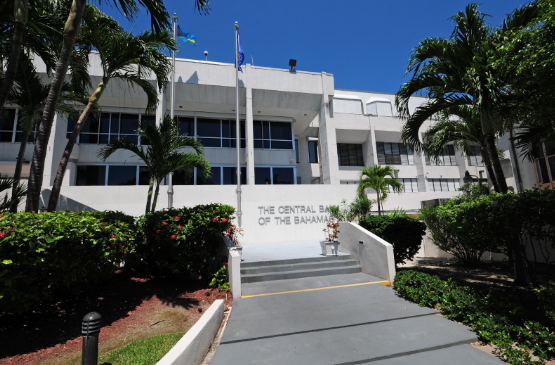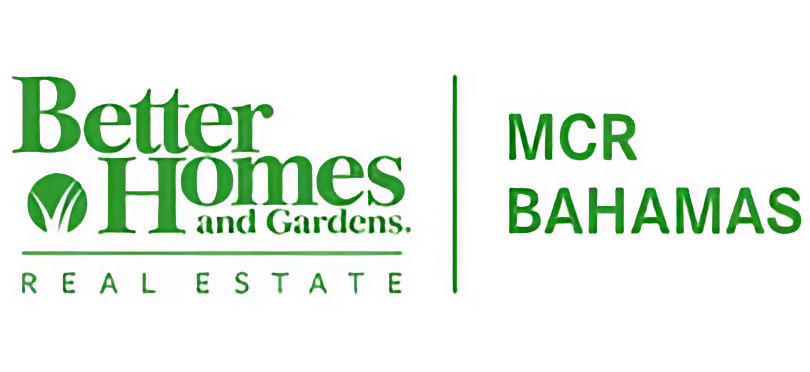- Ocean Club Estates in The Bahamas: Complete Review - March 19, 2024
- Albany Bahamas: A Luxury Community Review [2024] - March 17, 2024
- Bahamas Real Estate Prices: 2024 Guide - March 12, 2024
Who wouldn’t want to pay fewer taxes on their income?
Tax havens for individuals and businesses offer savings and peace of mind. Whether it’s The Bahamas, Panama, Costa Rica, or the Marshall Islands, many foreign investors are attracted to the thought of minimal taxes. And the excuse to visit a tropical country doesn’t hurt either!
Here at MCR Bahamas, we cater to businesses and individuals that want to invest, live, and thrive in one of the Caribbean’s most breathtakingly beautiful sets of islands. Whether you choose a beautiful Nassau condo or a luxurious Exuma mansion, you could enjoy tax benefits and live in a lovely home.
But is The Bahamas a tax haven for Canadians and Americans? For good reason, three of Canada’s big banks have registered over 2,000 offshore companies in The Bahamas. But the total number of offshore accounts is undoubtedly much higher.
Are you interested in exploring Bahamian investment and residency for its tax haven status? We’ll walk you through everything you need to know about tax havens and how The Bahamas provides the ultimate tax environment for foreign investors.
Table of Contents
What is a tax haven or tax neutral country?
A tax haven is a country or jurisdiction with low taxes and regulations, which makes it attractive for businesses and individuals to invest or store their money there. The Cayman Islands, Switzerland, and Belize might come to mind when thinking of tax havens, but don’t leave out The Bahamas.
Many tax benefits are available to those living and working in The Bahamas. The best part? You often don’t need to be a Bahamian citizen or even a resident to store your money in this tax haven.
But, tax havens aren’t all positive. Legal loopholes in tax havens have allowed tax evasion, money laundering, and other criminal activity. That’s why some countries are called “tax neutral,” meaning they have the tax benefits one might think of when you hear “tax haven” but have strict legal regulations around taxation.
Bottom line? Exercise caution if you’re thinking of storing your money in a tax haven, it’s important to understand all regulations, rules, and potential liability.
How are countries considered a tax haven?
A tax haven country offers foreign individuals and businesses low taxes (or even no taxes). Here are some tax haven criteria provided by the OECD:
- Little to no income tax
- Secrecy laws to keep deposits and transactions secure
On top of that, tax haven countries don’t often cooperate with other countries in questions of tax evasion or other inquiries. How? Relaxed regulations and secrecy laws prohibit tax authorities from seeing the money. You could store foreign income and investment returns in a tax haven to avoid paying US taxes.
With all the risk of criminal activity, are there any overarching positive attributes for tax havens?
For starters, you can run your business more efficiently if you’re paying less in taxes. Another thing to keep in mind is that tax haven countries reap the loss of income in other ways, such as through import duties and encouraging more investment and movement in their economy.
Is The Bahamas a tax haven?

There’s a reason why The Bahamas is nicknamed “the Switzerland of the West.” Maybe it has something to do with the estimated $5 trillion in Bahamian bank accounts.
Most people invest in The Bahamas because it’s a tax haven, specifically one of the Caribbean’s most popular tax havens. The country meets the OECD’s criteria of having minimal income tax and secrecy laws to protect its investors.
Why would The Bahamas be considered a tax haven or a tax neutral country?
The Bahamas is considered a tax haven because it doesn’t charge the following:
- Income Tax: Tax on income such as wages earned by individuals or profits made by businesses
- Gift Tax: Taxes charged when someone transfers valuable assets such as stocks or real estate, or large sums of money (starting at $16,000 in the U.S.)
- Capital Gains Tax: Tax placed on the profits from selling investments such as real estate, stocks and bonds, jewelry and coin collections.
- Estate Tax: When a person dies and passes their estate to someone else, whether through a will or according to state law, a tax is placed on the assets. The tax is based on the fair market value of the assets, and at the Federal level in the U.S., only properties worth more than $12.06 million are taxed. State tax thresholds are lower.
It’s easy to pick The Bahamas over the U.S. in this regard—the United States government charges upwards of 20% for each of the above-listed taxes.
How about corporate taxes? The Bahamas has a record-low corporate tax rate of 0%, minimizing tax liability for businesses. Furthermore, the country’s beaches, climate, and luxury real estate really embrace the “haven” classification, with a laid-back lifestyle and high quality of living.
These factors–combined with its proximity to the United States and easy access by flights–makes The Bahamas an attractive destination for businesses and investors looking to minimize their tax liability. As a result, it’s not surprising that The Bahamas is one of the most popular tax havens globally.
Why would The Bahamas not be considered a tax haven?
The Bahamas is often thought of as a tax haven, but there are several reasons why one might not consider it so. The country does charge some taxes, specifically:
- Value-added tax
- Property tax
- License fees (You need a business license to lease out any Bahamas property, costing you between $250 and $1,250.)
- Stamp tax
- Import duties
Tax Benefits to Living in The Bahamas
There are many tax benefits to living in The Bahamas.
The biggest one has to be The Bahamas lack of income tax for foreign income. Any money you earn from rental properties, investments, or other foreign sources won’t be taxed by the country. The same goes for estate tax, gift and inheritance tax, and capital gains tax. Residents with big estates can leave all the rewards to their grandchildren without the government taking a piece.
It’s an exceptionally convenient location for people in the property business. While the country does charge property tax, it’s nominal compared to that of some cities in the United States.
Property Tax
As mentioned above, you must pay property tax if you’re a foreigner with property in The Bahamas. Just how much? The exact amount depends on your property’s value.
The government (specifically the Real Property Valuations Unit) may appraise your property once a year. Otherwise, you can initiate the assessment process.
Once the government decides the tax owed, the owner actually has the right to challenge it. After an amount is confirmed, property owners must pay by the end of the year. Late payments result in penalties.
Import Tax
Are you interested in importing a brand new sofa or stylish bed frame? You can expect to pay a hefty import tax on it.
All foreigners who own property owe a Bahamas tax rate for imports. The tax applies to goods like furniture, electronics, and vehicles. At a whopping 35% tax rate, imports can be costly.
Add on top of that the Value-Added tax (VAT) of 12%, and your $5000 living room set just turned into a $7560 set.

National Insurance
Foreigners and permanent residents must pay National Insurance, or a social security tax. The Bahamas tax rate for National Insurance is about 9.8%, as of December 2021.
Stamp Tax
Are you thinking about purchasing a property development in The Bahamas? The country adds on an extra stamp tax, separate from the property tax. The Bahamas tax rate for stamp duty is 2.5%.
But property isn’t the only thing subject to stamp tax. You’ll need to pay it for various legal documents as well, such as:
- Affidavits
- Promissory Notes
- Powers of Attorney
- Trusts
- Bonds
- Mortgages
- Leases
- Release or Renunciation of Dowers
Check out the Bahamian government’s web page on stamp duties for a complete list.
Offshore Banks & Trusts in The Bahamas

Curious about what offshore banks and trusts look like in The Bahamas? This segment of banking is a giant industry, pumping a solid amount of revenue into the Bahamian economy.
Many foreign investors like the idea of offshore trusts to protect their money and ensure it goes to the correct beneficiary without government interference.
Here’s a list of some popular offshore banks in The Bahamas:
- UBS Bahamas Limited: This is an international bank that specializes in wealth management, including tailored, offshore trusts. While the website doesn’t detail minimum deposits, sources place the requirements between $100,000 to $500,000.
- Citco Bank and Trust: Specializing in asset protection, Citco is a multi-purpose institution that also offers regular banking services.
- Credit Suisse Bahamas Limited: This is one of the most popular offshore banks for wealth management and private banking. They’re notoriously selective in choosing clients, with many eligibility restrictions, and don’t favor cryptocurrency businesses.
So, is The Bahamas a Tax Haven?
It is! Though there are taxes you have to pay as a resident or investor, The Bahamas tax rate is nonexistent for income, inheritance, gift, and capital gains–making it a tax-neutral country that offers very attractive investment and savings opportunities for foreign investors.
Looking to purchase a home in Nassau or explore The Exumas? Are you interested in seeing what’s available on the market?
Find your dream luxury home in the Bahamas today by contacting us at MCR Bahamas!

